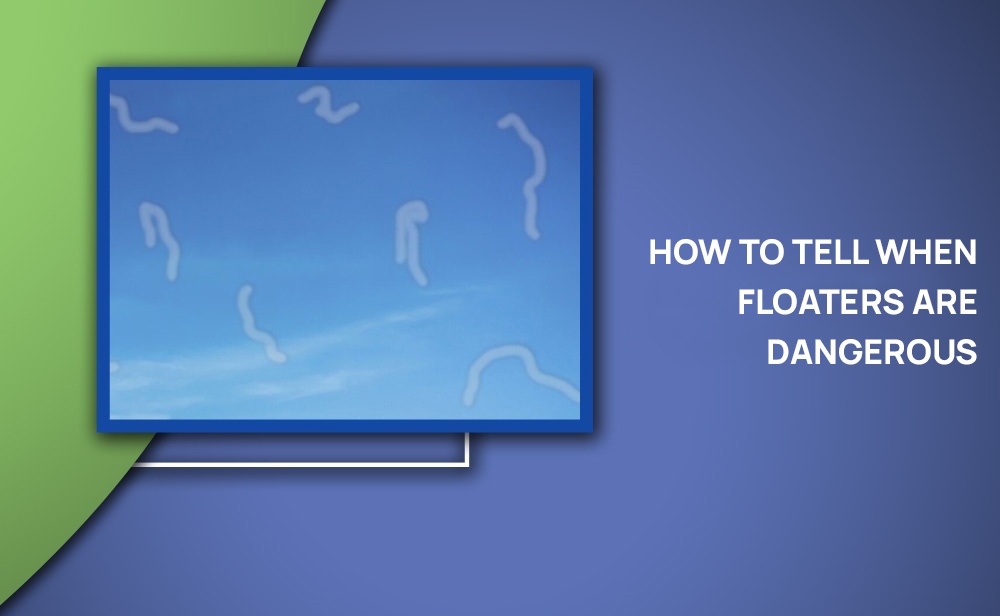How To Tell When Floaters Are Dangerous

Eye floaters are spots in your vision. They may look to you like black or gray specks, strings, or cobwebs and seem to drift about when you move your eyes and appear to dart away when you try to look at them directly. Most eye floaters are caused by age-related changes that occur as the jelly-like substance (vitreous) inside your eyes liquefies and contracts. Scattered clumps of collagen fibres form within the vitreous and can cast tiny shadows on your retina. The shadows you see are called floaters.
The experts at Opsis Eye Care want to ensure you understand the condition and make the right decisions for your future.
Understand what floaters are and what causes them
Floaters manifest as tiny lines, dots, specks, or shapes that are grey or dark floating in your vision. They usually swim in the vitreous (clear gel-like substance that supports the eye) and occur as part of the normal aging process. They will be more noticeable when looking at a bright or white background.
Floaters can be bothersome at first but will settle to the bottom, making them less noticeable, or your brain will get used to them and ignore them. Floaters are more prevalent in nearsighted people and diabetics and can occur after cataract surgery or following an eye injury.
Contact a professional
An increase in floaters that don’t resolve in about an hour can be an indication of something more serious, especially if they are accompanied by flashes of light. Flashes can be starbursts or arcs that can be central or peripheral in the vision. They can be a result of a retinal tear where the retinal is moving back and forth, causing flashes or traction from the vitreous shrinking and pulling on the retina.
Retinal tears can lead to retinal detachments, which is a serious eye condition that can lead to blindness if not treated in a timely fashion. If you see flashes and floaters that last longer than 1 hour, it is essential to see your optometrist as soon as possible. Small holes and tears in the retina can be repaired with a laser and prevent retinal detachment. Waiting too long will require surgery in the eye to repair the retinal detachment and can lead to permanent vision loss.
Advice from the pros
If you notice an increase in the frequency of your floaters, it is advised for you to see your optometrist to rule out eye disease. You could opt for a vitrectomy surgery to remove the vitreous if the floaters are significantly affecting vision. Additionally, there is a laser treatment called Vitreolysis that breaks apart large floaters making them smaller and hence less noticeable.
It is also wise to remember most people will experience floaters in their life. They are likely normal and do not require treatment. Eventually, you will get used to them, and they will not affect your vision. However, sometimes floaters can be a sign of a more severe problem. Therefore, if you experience floaters with flashes that persist, it is best to see your eye doctor to obtain a proper diagnosis and get the appropriate treatment for the underlying cause.
To learn more about our optometry services, reach out to the experts at Opsis Eye Care. We have a team of Optometrists/ Eye Doctors dedicated to providing the best patient experience and finding solutions for your eye care needs. We offer eye examination, contact lens fitting, laser (LASIK) eye surgery consultation, Optomap, and ortho-k (orthokeratology). We have patients visiting our eye clinic from Markham, Richmond Hill, North York, Scarborough, Vaughan, Thornhill, and the surrounding areas.
Get in touch with us today!
For more information about us and our optometry services, please click here. If you have any concerns about your vision, get in touch with us by clicking here or calling us at (905) 305-1333.